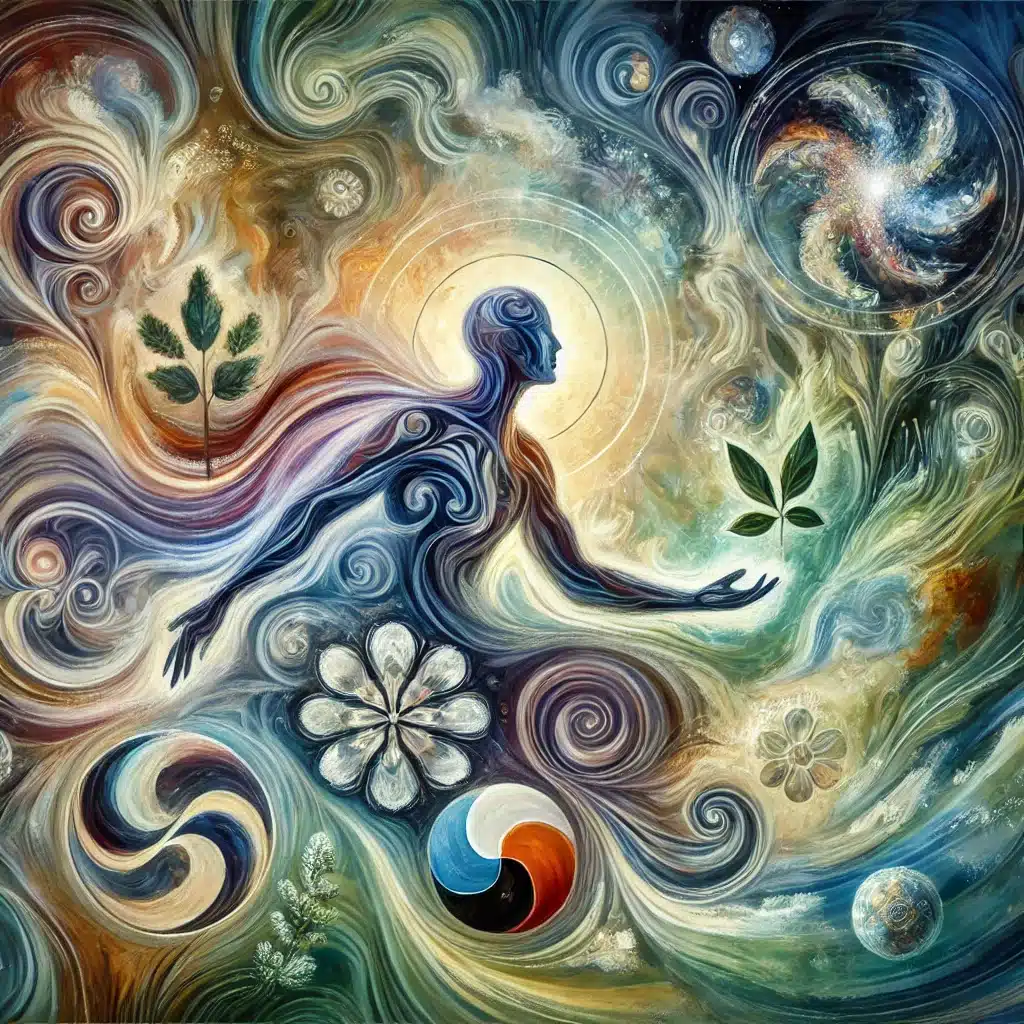
Focusfit book Summary of “The Varieties of Religious Experience” by William James
William James’s “The Varieties of Religious Experience” is a seminal work in the field of psychology and philosophy, first published…
August 20, 2024

William James’s “The Varieties of Religious Experience” is a seminal work in the field of psychology and philosophy, first published in 1902. The book is based on a series of lectures given by James at the University of Edinburgh between 1901 and 1902 as part of the Gifford Lectures on Natural Theology. The lectures focus on the psychological study of individual religious experiences, rather than institutional religion or theological doctrines. James approaches the subject from a pragmatic and empirical standpoint, emphasizing the importance of understanding religious experiences through the lens of psychology.
The Nature of Religious Experience
James begins by distinguishing between two kinds of religious experiences: those that are institutional and those that are personal. He is primarily concerned with the latter, which he sees as more fundamental and more closely tied to the inner life of individuals. Personal religious experiences, according to James, often occur in moments of crisis or intense emotional states and can lead to profound changes in a person’s life.
James argues that religious experiences should be taken seriously because of the impact they have on the lives of those who experience them. He points out that such experiences are often characterized by a sense of the divine, a feeling of being in the presence of something greater than oneself, and a transformation in the individual’s sense of self and relationship to the world.
Mysticism and the Ineffable
One of the key aspects of religious experience, according to James, is its mystical nature. Mysticism, as James describes it, involves experiences that are beyond the ordinary range of human perception and understanding. These experiences are often described as ineffable, meaning they cannot be adequately expressed in words. Mystical experiences are typically marked by a sense of unity with the divine or with the universe, a feeling of transcendence, and a loss of the sense of individual self.
James emphasizes that the ineffability of mystical experiences does not make them any less real or significant. On the contrary, he suggests that the very fact that these experiences transcend ordinary language and understanding is what makes them so powerful and transformative.
The Healthy-Minded and the Sick Soul
In his analysis of religious experience, James identifies two contrasting types of religious temperaments: the “healthy-minded” and the “sick soul.” The healthy-minded individual tends to focus on the positive aspects of life and religion, often experiencing feelings of joy, peace, and love. This type of religious experience is characterized by a sense of optimism and a belief in the essential goodness of the world and of human nature.
On the other hand, the sick soul is more prone to feelings of sin, guilt, and despair. For individuals with this temperament, religious experience often involves a struggle with inner turmoil, a sense of alienation from God or the divine, and a deep awareness of the suffering and evil in the world. James suggests that both of these temperaments are valid and that they represent different ways of grappling with the complexities of human existence.
Conversion and the Unconscious
James explores the phenomenon of religious conversion, which he sees as a dramatic example of the transformative power of religious experience. Conversion, according to James, involves a sudden and profound change in an individual’s beliefs, attitudes, and way of life. This change is often triggered by an intense emotional experience, such as a feeling of divine presence, a vision, or a moment of crisis.
James argues that the process of conversion is closely related to the workings of the unconscious mind. He suggests that the unconscious plays a crucial role in religious experience by bringing to the surface deep-seated emotions, memories, and desires that may not be accessible to the conscious mind. Through this process, individuals can experience a radical shift in their worldview and sense of self.
The Pragmatic Value of Religious Belief
One of the central themes of James’s work is the pragmatic approach to religious belief. James argues that the truth of a religious belief should be judged not by its correspondence to objective reality but by its practical effects on the individual’s life. In other words, a belief is true if it works, if it helps the individual to live a better, more meaningful life.
This pragmatic approach allows James to take religious experiences seriously, even if they cannot be scientifically verified or objectively proven. He suggests that the value of religious experiences lies in their ability to provide individuals with a sense of purpose, peace, and connection to something greater than themselves.
The Plurality of Religious Experiences
Throughout the lectures, James emphasizes the diversity of religious experiences and the wide range of ways in which individuals can experience the divine. He argues against any attempt to reduce religious experience to a single, uniform pattern or to impose a single theological interpretation on all religious experiences. Instead, James advocates for an open-minded and inclusive approach that recognizes the richness and complexity of religious life.
James also points out that religious experiences are not confined to any one religion or belief system. He draws on examples from a wide range of religious traditions, including Christianity, Islam, Hinduism, Buddhism, and indigenous religions, to illustrate the universality of religious experience. This pluralistic approach reflects James’s belief that religious experience is a fundamental aspect of human nature, one that transcends cultural and religious boundaries.
Critique of Institutional Religion
While James is primarily concerned with individual religious experience, he does not shy away from critiquing institutional religion. He argues that religious institutions often become rigid, dogmatic, and more concerned with maintaining power and control than with fostering genuine spiritual experiences. James suggests that institutional religion can sometimes stifle the personal, transformative aspect of religious experience, reducing it to a set of rules and rituals that lack real meaning for the individual.
At the same time, James acknowledges that institutional religion can play an important role in providing a sense of community, tradition, and moral guidance. However, he emphasizes that the true value of religion lies in the personal, inner experience of the divine, rather than in adherence to external forms and doctrines.
Conclusion
In “The Varieties of Religious Experience”, William James provides a profound and insightful exploration of the psychological dimensions of religious life. By focusing on the individual’s personal experience of the divine, James offers a fresh perspective on religion that goes beyond theology and doctrine. His pragmatic approach allows for a more inclusive and open-minded understanding of religious belief, one that recognizes the diversity and complexity of human experience.
James’s work remains influential to this day, not only in the fields of psychology and philosophy but also in the study of religion and spirituality. “The Varieties of Religious Experience” continues to be a valuable resource for anyone seeking to understand the nature of religious experience and its impact on human life.
better life, For curvier, health, self development, spirituality

Plantar fasciitis is one of the most common foot conditions, causing pain and discomfort along the bottom of the foot,…
January 22, 2025
* indicates required fields